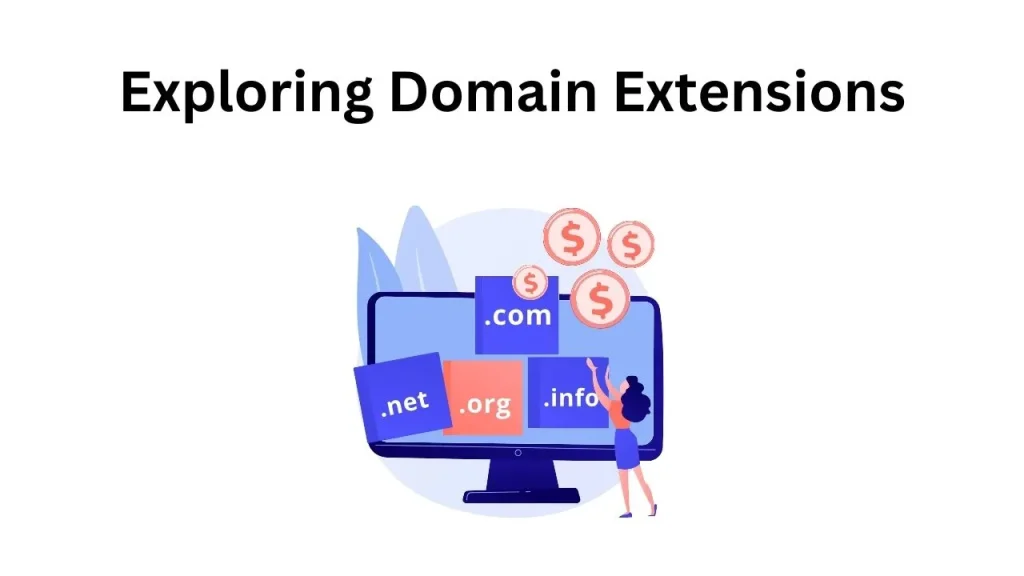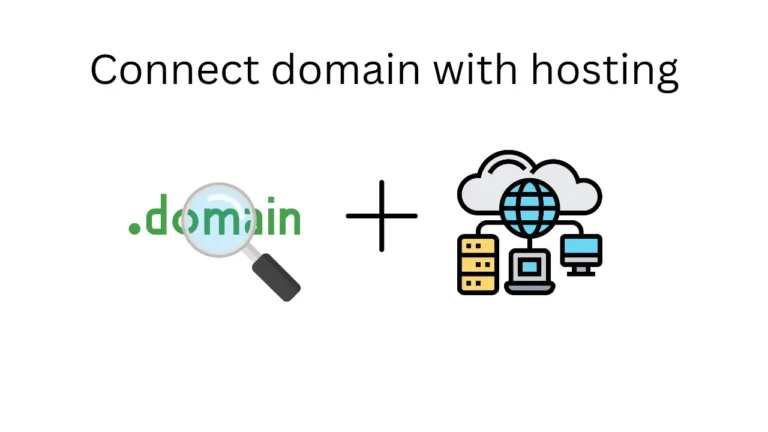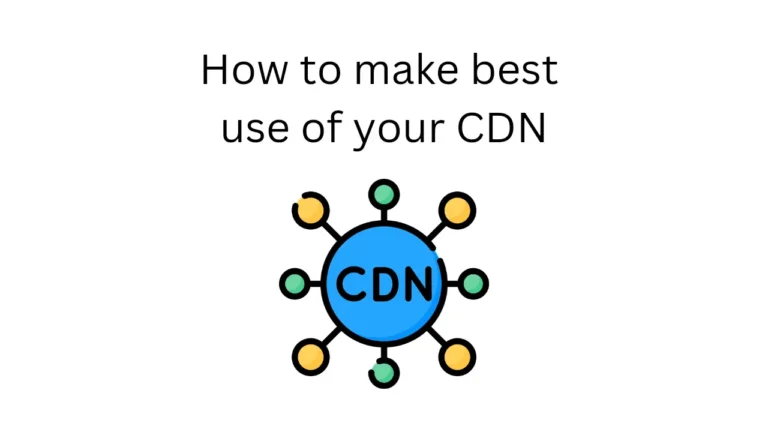Introduction to Domain Extensions
In the vast landscape of the internet, domain extensions play a crucial role in defining a website’s identity and purpose. From the ubiquitous .com to the more niche-specific .io and .blog, the choice of domain extension can significantly impact branding, SEO, and overall online presence.

What are domain extensions?
Domain extensions, also known as top-level domains (TLDs), are the suffixes at the end of website addresses. They typically consist of three or more letters and serve as a categorization tool for websites. Common examples include .com, .org, and .net.
Importance of choosing the right domain extension
Selecting the appropriate domain extension is akin to choosing the right name for a business. It not only reflects the nature of the website but also influences how users perceive the brand and its credibility. Additionally, domain extensions can affect search engine rankings and online visibility.
Traditional Domain Extensions (.com, .org, .net)
History and popularity
The .com domain extension, short for “commercial,” was one of the first TLDs established in the early days of the internet. It quickly became the default choice for businesses, organizations, and individuals due to its familiarity and credibility. Similarly, .org (originally intended for non-profit organizations) and .net (for network-related services) gained popularity for specific purposes.
Suitable for various purposes
Despite the emergence of newer domain extensions, .com, .org, and .net remain widely used and recognized. They are suitable for a broad range of websites, including e-commerce stores, informational blogs, and personal portfolios.
New Generic Top-Level Domains (gTLDs)
Introduction to new gTLDs
In recent years, hundreds of new gTLDs have been introduced to cater to specific industries, interests, and communities. These include extensions such as .io, .tech, .blog, and .design, offering website owners more choices and opportunities for branding.
Advantages and disadvantages
New gTLDs provide greater flexibility and creativity in domain naming, allowing businesses to craft memorable and relevant web addresses. However, they may lack the universal recognition and trust associated with traditional extensions like .com.
.XYZ: The Versatile Domain Extension
Introduction to .XYZ
Among the new gTLDs, .XYZ has emerged as one of the most versatile and popular choices. Introduced in 2014, .XYZ offers a fresh and modern alternative to traditional extensions, making it suitable for a wide range of applications.
Reasons for its popularity
XYZ is catchy, memorable, and easy to spell, making it ideal for startups, creative projects, and personal websites. Its neutrality also makes it suitable for global audiences, transcending geographical and industry-specific boundaries.
Suitable use cases
From e-commerce ventures to tech startups and creative portfolios, .XYZ is embraced by individuals and businesses alike seeking a distinctive online presence. Its affordability and availability further contribute to its widespread adoption.
Niche-Specific Domain Extensions
Examples of niche-specific extensions
In addition to generic extensions like .com and .net, there are numerous niche-specific TLDs catering to specific industries and interests. Examples include .store for e-commerce, .edu for educational institutions, and .photography for photographers.
Benefits of using niche extensions
Niche-specific domain extensions help websites stand out in crowded market segments, establish authority, and attract relevant audiences. They also signal professionalism and specialization within a particular field.
Geo-specific Domain Extensions
Overview of geo-specific extensions
Geo-specific domain extensions, such as .nyc, .london, and .tokyo, are designed to target local audiences in specific geographic regions. They are particularly useful for businesses and organizations with a strong regional presence.
Targeting local audiences
By incorporating geo-specific extensions into their web addresses, businesses can enhance their local SEO efforts, improve search engine rankings for location-based queries, and build trust among local consumers.
Branding with Unique Domain Extensions
Using domain extensions for branding
Domain extensions play a crucial role in branding, helping businesses communicate their identity, values, and offerings to their target audience. By choosing a relevant and memorable extension, companies can reinforce brand recognition and differentiation.
Standing out in the crowded online space
In a competitive online landscape, unique domain extensions offer an opportunity for businesses to differentiate themselves from competitors and capture the attention of their target market. Whether it’s .brand, .studio, or .agency, creative extensions can leave a lasting impression on visitors.
SEO Considerations for Domain Extensions
Impact on SEO
While domain extensions themselves do not directly impact SEO rankings, they can influence user perception, click-through rates, and brand authority. Websites with relevant and trustworthy extensions may enjoy a slight advantage in search engine results pages (SERPs).
Best practices for choosing domain extensions for SEO purposes
When selecting a domain extension for SEO purposes, it’s essential to prioritize relevance, credibility, and user experience. Avoid using obscure or spammy extensions that could detract from your site’s trustworthiness and authority.
Legal and Trademark
Considerations
Avoiding trademark infringements
Before registering a domain extension, it’s crucial to conduct thorough research to ensure that it does not infringe upon existing trademarks or copyrights. Failure to do so could result in legal disputes and potential loss of domain ownership.
Legal implications of domain extensions
Certain domain extensions may be subject to specific regulations or restrictions imposed by regulatory bodies or governing authorities. It’s essential to familiarize yourself with the legal implications associated with your chosen extension to avoid any compliance issues.
Future Trends in Domain Extensions
Predictions for the future of domain extensions
As the internet continues to evolve, we can expect to see further diversification and innovation in domain extensions. Emerging trends such as blockchain-based domains, augmented reality (AR) extensions, and voice-enabled TLDs are poised to reshape the digital landscape.
Emerging trends to watch out for
Keep an eye on emerging trends such as decentralized domain systems, personalized extensions, and industry-specific TLDs tailored to niche markets. By staying informed and adaptable, businesses can leverage these trends to stay ahead of the curve.
Case Studies and Examples
Success stories of companies using unique domain extensions
Numerous companies have successfully leveraged unique domain extensions to enhance their branding and online visibility. Examples include tech startups using .io, creative agencies using .design, and food bloggers using .kitchen.
Lessons learned from their experiences
By studying the experiences of these companies, we can glean valuable insights into the strategic use of domain extensions for branding, marketing, and SEO. Experimenting with different extensions and analyzing their impact can help businesses make informed decisions.
Cost Considerations
Pricing differences among domain extensions
The cost of domain registration varies depending on factors such as popularity, demand, and registry fees. While traditional extensions like .com may command higher prices due to their widespread use, newer gTLDs such as .xyz often offer more affordable options.
Factors influencing the cost of domain registration
Factors such as domain length, keyword relevance, and premium domain status can also affect registration costs. Additionally, some registrars may offer discounts or promotions for certain extensions, so it’s worth comparing prices and shopping around.
Registering and Managing Domain Extensions
Step-by-step guide to registering domain extensions
Registering a domain extension involves selecting a registrar, checking domain availability, completing the registration process, and configuring domain settings. Most registrars offer intuitive interfaces and tools to simplify the registration process.
Tips for managing multiple domain extensions effectively
For businesses with multiple domain extensions, centralized management tools and domain portfolio management services can streamline administration and ensure consistency across all web properties. Regularly monitoring domain status and renewing registrations promptly is also essential.
Social Media Integration
Utilizing domain extensions across social media platforms
Integrating domain extensions into social media profiles and posts can reinforce brand identity and drive traffic to your website. Custom short links and branded hashtags featuring domain extensions can enhance visibility and engagement on platforms like Twitter, Instagram, and LinkedIn.
Enhancing brand consistency and visibility
Consistency is key when it comes to branding across different channels, including social media. By using the same domain extension across all online touchpoints, businesses can maintain brand coherence and make it easier for users to find and recognize their brand.
Conclusion
Choosing the right domain extension is a critical decision that can have a lasting impact on your online presence. Whether you opt for a traditional extension like .com or a unique extension like .xyz, it’s essential to consider factors such as branding, SEO, and legal compliance. By exploring the diverse range of domain extensions available and experimenting with different options, you can create a memorable and effective web address that resonates with your target audience.
FAQs
- Are new domain extensions as trustworthy as .com?
- While .com is widely recognized and trusted, newer domain extensions can be equally reliable if chosen thoughtfully and used strategically.
- Can I switch my domain extension after registering a domain?
- In most cases, changing domain extensions requires registering a new domain and redirecting traffic from the old domain to the new one. It’s essential to consider the potential impact on SEO and branding before making such a decision.
- Do domain extensions affect SEO rankings?
- While domain extensions themselves do not directly impact SEO rankings, they can influence user perception and click-through rates, which may indirectly affect search engine rankings.
- Are there any restrictions on who can register certain domain extensions?
- Some domain extensions may have eligibility criteria or restrictions imposed by registry operators. It’s essential to review the registration requirements for each extension before attempting to register.
- How can I protect my domain extension from trademark infringement?
- Conduct thorough research to ensure that your chosen domain extension does not infringe upon existing trademarks or copyrights. Consider consulting with legal experts to mitigate the risk of trademark disputes.


